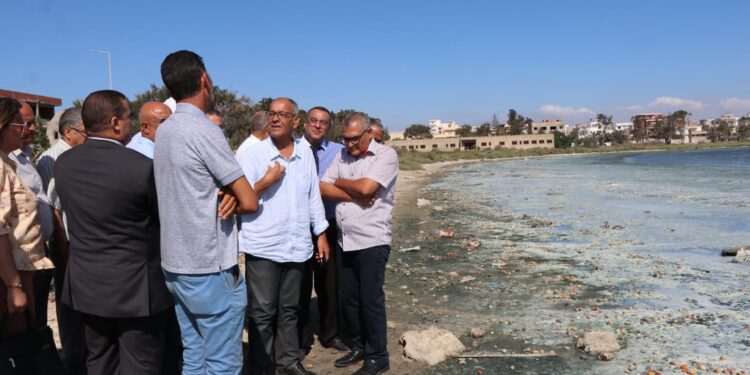What is played out in Tazarka goes beyond the simple framework of a local pollution problem. It is a revealer of the deeper crisis of public authority in the face of powerful and organized private interests.
When a large majority of manufacturers can reject their polluted waters with impunity in a fragile ecosystem, without the sanctions fall or that solutions being imposed, it is the very idea of a regulating state that vacillates. Tazarka’s Sebkha is not just a receptacle of waste: it is today the symbol of an unbalanced force relationship between environment and economy, between legality and laxity. The visit of a minister is not enough. The state must now show, by concrete actions, that it is still able to enforce the general interest.
Indeed, visiting this Monday, July 28, 2025 in the governorate of Nabeul, the Minister of the Environment, Habib Abid, noted the extent of the environmental pollution which affects the Sebkha of Tazarka (delegation of Korba), in particular up to a point of wild spill of polluted industrial waters from the industrial zone of El Mzaraa.
According to Arfa Nechi, a member of the Korba Local Council for the Tazarka region, this ministerial visit has highlighted a critical environmental situation, which has been lost for several years. Industrial wastewater is regularly poured into the SEBKHA through a wild canal and an underground installation maintained at the regional road n ° 27, without any control of the authorities.
The heart of the problem lies in the manifest refusal of the majority of industrial units to comply with environmental standards. Arfa Nechi has revealed only 9 units, out of the 23 located in the industrial zone, have compliant treatment systems allowing the public sanitation network. The others continue to reject their wastewater without treatment, in total contempt for the environment and the law.
This situation raises a disturbing question: in Tazarka, do industrialists impose their law in the face of inaction-even the impotence-of the State? If the ministerial visit has drawn attention to this chronic pollution, the inhabitants are now awaiting concrete acts to end an impunity that has become unbearable.








